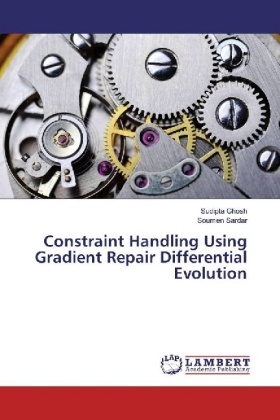Read more
The Differential Evolution (DE) algorithm emerged as a very competitive form of evolutionary computing more than a decade ago. The first article on DE published as a technical report by Rainer Storn and Kenneth V. Price in 1995. DE operates through the same computational steps as employed by a standard EA. However, unlike traditional EAs, DE employs difference of the parameter vectors to explore the objective function landscape. The Gradient Repair method is suitable used as a infeasible solution repairing technique along with Differential Evolution (DE) algorithm results in development of Gradient Repair Differential Evolution algorithm for constrained optimization. While handling real-world problems we not only have to find the optimal solutions but also have to satisfy one or more certain specified functional criterion and other requirements known as constraints to generate an acceptable solution. Thus the proposed GRDE algorithm efficiently handles the constrained real world problems.
About the author
Awarded Ph.D. from Jadavpur University, India and recipient of Fogarty Visiting Fellowship at National Institutes of Health, MD, USA. He is a Professor of Zoology at Calcutta University with research interest in Toxicology.

